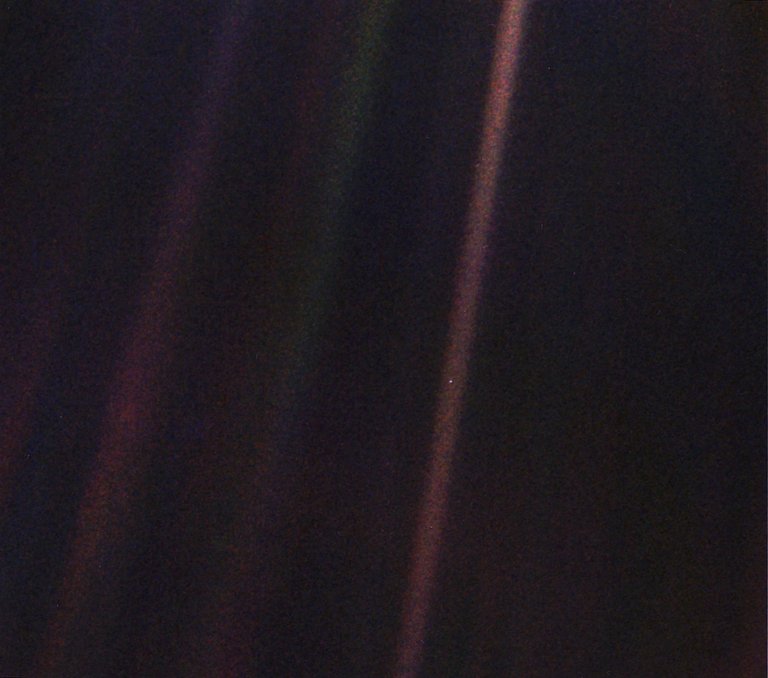Voyager, cross-border

This week NASA has released data collected during the passage of Voyager 2 from the heliosphere to interstellar space. The ship traveled this border just a year, 42 years after its launch and 18 billion kilometers (119 times the distance separating the Earth from the Sun). In fact, Voyager was sent a couple of weeks after 2, but they have made different tours:Voyager 1 passed around Jupiter and Saturn and Voyager 2, in addition to these two planets, visited Uranus and Neptune. It is the only probe that has occurred around these last two planets. There are no man-made instruments that have come so far. On the way, images of the planets nearby have been sent. Thanks to them you could see for the first time the rings of Saturn and the storms of Jupiter, but surely they are not the most significant images but a photograph taken from the planet itself. It is named after a blue dot (pale blue dot). In that photo, the Earth is that, a tiny and weak point, lost in a dark and infinite space. Voyager 1 came out in 1990 at 6,000 million kilometers away and, in its smallness, has a huge force: The prestigious scientific disseminator Carl Sagan wrote a book inspired by him. According to him, it represents our true size, our humility. In fact, they thought of putting in the two containers a golden disc with information about the Earth and our species: photos, greetings in 56 languages, natural and artificial sounds, multicultural songs... Sagan chose all this content so that some alien could find one of the albums and listen to it to meet us and our planet. The newest thing is the transition between the heliosphere, that is, the protection bubble that forms the Sun's magnetic field, and the interstellar space. Voyager 1, for some errors, sent very little data, but the systems of Voyager 2 have worked well, which has allowed, among other things, to know that in heliosis there is a warmer and less dense plasma in the interstellar space, since the two domains. And before you get there, the nuclear fuel will run out and the appliances will spoil. However, at least 25 years will pass for another boat to reach its destination. There is something, considering that they left in 1977.
Published in Berria
Buletina
Bidali zure helbide elektronikoa eta jaso asteroko buletina zure sarrera-ontzian











